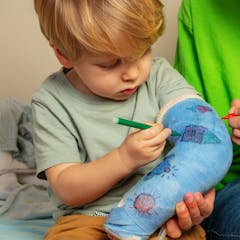
Articles on Health
Displaying 1421 - 1440 of 2517 articles

With so many people grieving, the notion of doing so in public was seen as tasteless and vulgar. Funerals became smaller, people put on a brave face in public and fewer people wore black.

One in 20 Australians has ADHD. But some people call the condition ADD. What’s the difference?

The animal studies are promising but early research in humans show mixed results. Here’s what we know so far.

Musk has recommended people experiencing severe neck and back pain should consider disc replacement surgery. Here’s what the research says.

We now have a sensible pathway to improve access to health care, using the skills of nurses, pharmacists and GPs appropriately.

Having asymptomatic flat feet is not a problem and does not require treatment. It’s important to debunk this common myth.

Under the new law, the legal age for cigarette sales will increase by a year each year from 2027. This means people born from 2009 will never be able to legally buy cigarettes in the UK.

Here’s how we design a fairer pathology system, fit for the 21st century, with no out-of-pocket costs or the public.

It turns out that, although such measurements are important, waist circumference and ratio to height are not the whole story when it comes to your risk of disease and death.

While for some, gambling might be a source of entertainment, for others, it can lead to significant harms.

Has your child fractured a bone? A new report shows it’s the leading type of injury for kids. But the causes of injury change as children grow older and differ between boys and girls.

Some women who use drugs like Ozempic have reported unexpected pregnancies. What’s going on?

There is only one audiologist for every million people in Africa. Pioneering digital devices help close the gap.

Filtering out PFAS is only the first step. These ‘forever chemicals’ still have to be destroyed, and there are many questions about how to do that safely.

Many people in the disability community are distressed by the plan to register all NDIS providers. There could be a more nuanced approach that preserves their wishes.

We can’t avoid stress altogether. But there are healthy ways to deal with it and move on.

Does weight come back when you stop taking drugs like Ozempic? Are these medications simply another (expensive) form of yo-yo dieting? Here’s what we know so far.

A new study reveals the extent of the COVID pandemic’s effect on headteachers, including high workloads, stress and exhaustion.

The vast majority of people with mental illness pose no risk of violence to others. But is there a link between mental illness and violent crime?

Historians are working to shine a light on Alice Ball’s legacy and contributions to an early treatment of a dangerous and stigmatizing disease.

